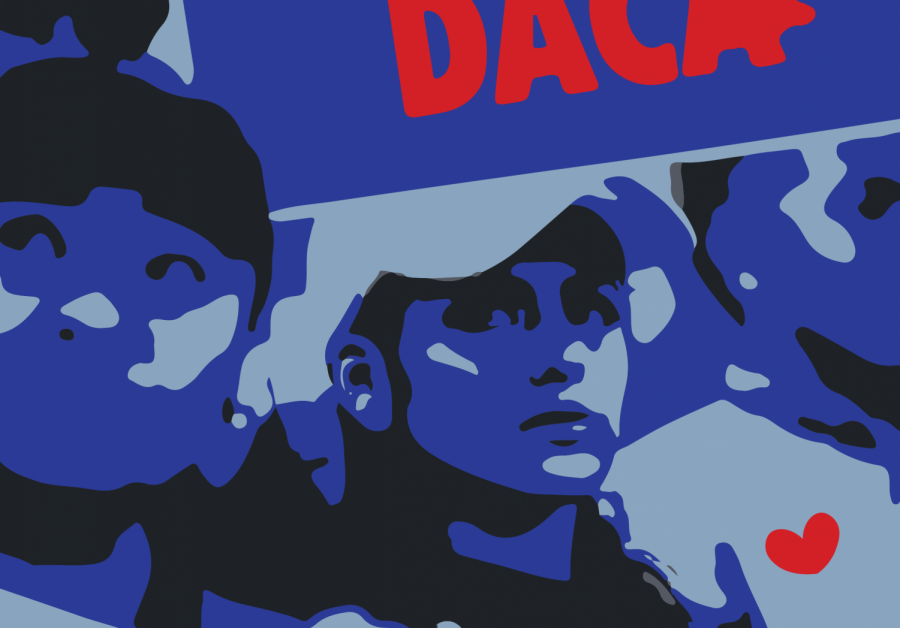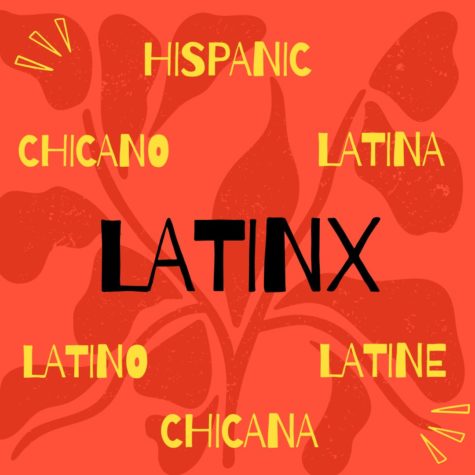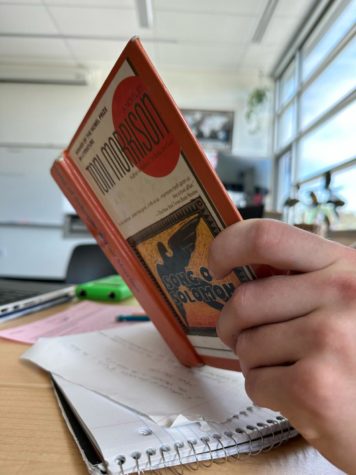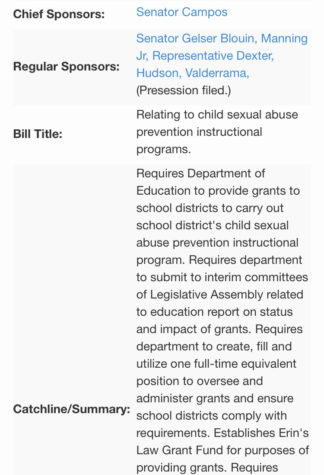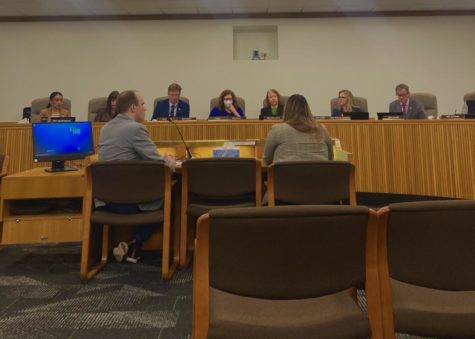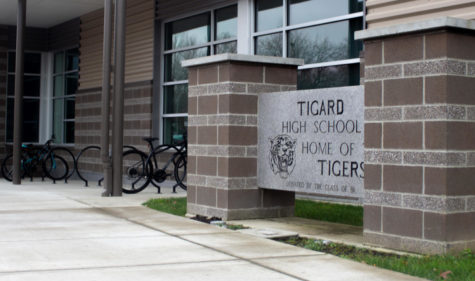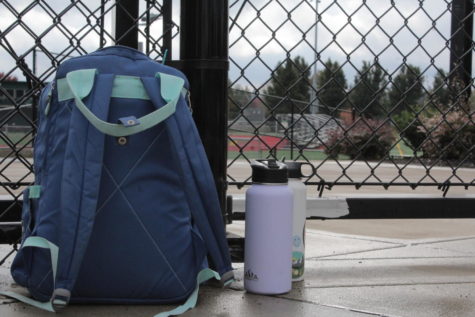Living the American Dream in Hiding
An interview with an undocumented student at Tigard High School, and their experience with the current political climate behind an undocumented status
“I feel like a lot of people who oppose illegal immigration always say no parent would ever put their child in danger for crossing the border. And what they don’t realize is that my parents and other undocumented parents would never do that unless they absolutely had to,” DACA receiving student.
Student names have been changed for confidentiality and safety of those involved.
Christine immigrated to the United States from Mexico when she was three years old. “I feel like a lot of people who oppose illegal immigration always say ‘no parent would ever put their child in danger for crossing the border,” she said. “And what they don’t realize is that my parents and other undocumented parents would never do that unless they absolutely had to.”
Throughout his campaign, President Trump repeatedly stated that he did not support illegal immigration to the United States. Trump promised immigration reform, including expanding border security and increasing ICE pursuit of undocumented immigrants currently in the country.
Within the first months of his presidency, Trump denounced sanctuary cities, or cities that choose to limit interactions between law enforcement and immigration officials. He promoted a zero-tolerance policy which prohibited immigrants including those seeking asylum and carrying children from entering the US, but most critically, the President started working on reversing the Obama-Era policy of DACA.
Deferred Action for Childhood Arrivals, also known as DACA, protects undocumented immigrants who were brought to the country as children. In order to qualify for the status, applicants must have been brought to the country before they were they were 16 and been living in the US since before June 15, 2007.
A majority of applicants were from South and Latin American countries such as El Salvador, Mexico, and Honduras. The status does not grant recipients citizenship or legal, long-term residency, instead allowing them to get driver’s licenses, enroll in college, and legally secure jobs. Additionally, they must pay income tax.
As an attempt to pursue a higher education for herself, Christine filled out the $500 application for DACA during her sophomore year of high school. She was able to to pay the fee for the application through a scholarship fundraised by Tigard’s MECHA club. The DACA process took around six months, which she noted, was a bit longer than she was expecting. But the benefits of DACA were helpful for her; they allowed her to get a job and a social security number.
I know that the school isn’t supposed to give out my information to ICE, but this only reassured me, yet it didn’t make me feel exactly safe. In that period of time, it was really hard going to school with the fear that I’d be leaving my family and possibly never seeing them again
— DACA receding student
“Someone who isn’t a DACA recipient will go through so many more struggles, which does impact their high school experience,” she added. “It prevents them from being able to drive for volunteering or joining clubs and sports, which are important for college and their future.”
DACA has opened a lot of doors for her, and she wishes more students were able to have the opportunities it provides for her. Unfortunately, a lot of undocumented students she knows are fearful of the application process.
“The fear of also not being to obtain DACA again after it expires is a huge problem,” Christine says. “It is extremely helpful for the time being, but the fear of getting deported after it expires is something we have to deal with.”
In 2016, there were multiple reports of ICE being in the Tigard area. Christine was fearful for her family and was worried about herself and her parents possibly being deported.
“I know that the school isn’t supposed to give out my information to ICE, but this only reassured me, yet it didn’t make me feel exactly safe. In that period of time, it was really hard going to school with the fear that I’d be leaving my family and possibly never seeing them again.”
“People were on Snapchat notifying each other about ICE sightings. During that time, I was so scared to go home that I would stay at school for three extra hours because I didn’t want my parents to pick me up. Since they aren’t protected by anything, I had to have other people give me rides home, because I was so fearful that ICE would target my family [and me].”
Former Tualatin multicultural coordinator and current Tigard Associate Principal Angelita Miller has been in the Tigard-Tualatin School District for over 15 years. She recognizes the struggles and fears that undocumented students face, which affects their school environment.
“If you’re undocumented, especially in this political climate, you might feel vulnerable as a person…If you’re a student in high school the goal would be to graduate from high school and then go on to a four year university. If you’re not documented then you might feel hopeless about how’s that all going to work out.”
TTSD Superintendent Susan Rieke-Smith explained, the Supreme Court choice prohibits school districts from requesting that students provide their immigration status. TTSD does not require a birth-certificate or social security number to enroll in school, as reinforced in 2016 shortly after elections. TTSD Board Resolution 1617-16 dated May 8, 2017 reinforced the district’s specific policy on protecting and working with undocumented or DACA receiving students; and Rieke-Smith herself was adamant that the district would take precautions to protect these students.
“I follow the law,” Rieke-Smith said. “And the law says that we are required to educate students regardless of immigration status.”
District policies provide safeguards to protect students and the school environment should Immigration and Customs Enforcement (ICE) come on to TTSD property for the purposes of conducting law enforcement actions, or obtaining information about students and their families.
Although it was promised in Resolution 1617-16, not all of the faculty at Tigard has received training for circumstances involving ICE. Miller confirmed that only administrators were trained, in regards to the policy taken by the district.
“As administrators, we did sit in meetings to talk about how we would handle situations if they came up, but we never had anyone try to come to the school so I didn’t have to worry about it because it never happened,” Miller said.
In her opinion, the cost of the DACA application and risk involved deters many students from applying, despite how beneficial it can be.
“[The application] is so expensive and most people aren’t lucky like me, and they can’t receive aid to pay for their DACA application,” she said. “People also are fearful of DACA, since they have so much information about us. The idea of getting deported and sent back to Mexico is a factor that prevents people from getting DACA status.”
“It’s frustrating, because to me, being an undocumented student is so hard and unfair. You can’t be average as an undocumented student,” she said.
She is a full IB student, has two internships, and has completed over 100 volunteer hours.
“My full resume is often not enough to get scholarship money simply because of my citizenship status,” she said. “Compared to other students who are citizens, they have a lower bar of expectations to afford college compared to the low-income undocumented students. The only have chances we have to afford college is by full-rides from top universities.”
Despite all of these factors and fears, she decided it was more important to gain the status. She hopes to complete higher levels of education and to become a doctor in the future. This spring she will graduate along with the rest of the senior class.



